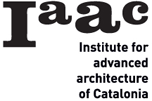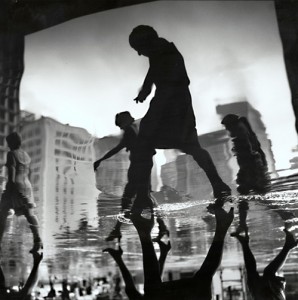IC.3 SEMINAR - THEORY CONCEPTS 01 - ADVANCED ARCHITECTURE CONCEPTS
2 ECTS credits
TUTORS: Manuel Gausa, Maite Bravo, Ricardo Devesa.
This seminar examines a series of seminal essays on architecture by key thinkers on the twentieth century, that will provide the bases to develop a relevant body of critical thought currently developing outside the prevalent mainstream architectural discourse.
The series starts reviewing a general overview of architectural culture at the beginning of the twentieth first century, considering the vast advancements in specialized knowledge, the impact of the information society and the pressing environmental concerns, which are deeply questioning the very basis of architectural practice. It examines how some key architectural practitioners are proposing solutions based on new design methodologies, new construction techniques, and novel materiality explorations.
This seminar explores new relevant architectural references in order to construct a critical body of knowledge that will serve as instruments to enable the exploration of current design methodologies in advanced architecture.
“Advanced architecture is to digital society what modern architecture was to the industrial society: an architecture bound up with interchange and information. With the capacity for displacement and modification. With the dynamic evolution of process and their associated spatial definition. Advanced architecture occurs, in fact, as an outcome of direct process of interchange; in synergy and flexible interaction with the environment which it acts. It is an act of active ecology that interacts decidedly with the environment, whether natural, artificial or digital. Advanced architecture is, therefore, a reactivating architecture to the extent that it strives to react with reality in order to restimulate it. Innovating it: at once reinforming it and recycling it. Exchanging information with and whitin it.”
From: “The metapolis dictionary of advanced architecture” by Manuel Gausa, Vicente Guallart, Willy Müller, Federico Soriano, FernandoPorras, José Morales, ed ACTAR 2003.
The program is structured around three Conceptual Frames— Advanced Systems / Informational Logics:
Frame 1- Systems/Strategies — Transversal Logics: information – cities. Professor: Manuel Gausa
Frame 2- Systems/ Environments — Relational Logics: cities – natures. Professor: Ricardo Devesa
Frame 3- Systems/Process — Digital Logics: natures – information. Professor: Maite Bravo
The contents will be exposed as a theoretical frame, with some examples of projects/protagonists, a series of readings and finally, a workshop. In addition, some open lectures at the IaaC will be programmed during the course.

